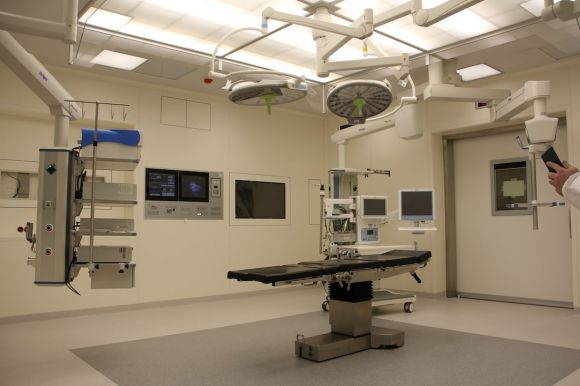The healthcare industry is continuously evolving, and technology plays a key role in this transformation. In recent years, the United Kingdom has emerged as a hub for healthtech innovation, with several industries leading the way in disrupting traditional healthcare practices. From telemedicine to wearable devices, these advancements are revolutionizing the way healthcare is delivered, improving patient outcomes, and reducing costs.
Telemedicine: Bringing Healthcare to Your Fingertips
Telemedicine, also known as telehealth, has gained significant traction in the UK healthcare industry. This technology allows patients to consult with healthcare professionals remotely, eliminating the need for in-person visits. Through video conferencing and secure messaging platforms, patients can receive medical advice, get prescriptions, and even have follow-up appointments without leaving their homes. This not only saves time and money for patients but also reduces the strain on healthcare facilities, particularly during times of crisis such as the COVID-19 pandemic.
Wearable Devices: Empowering Patients to Take Control of their Health
Wearable devices have become increasingly popular among UK consumers, and their impact on healthcare cannot be underestimated. These devices, including smartwatches, fitness trackers, and health monitoring sensors, enable individuals to track their vital signs, exercise routines, sleep patterns, and overall health. By providing real-time data, wearable devices empower patients to take a proactive approach to their health and well-being. Additionally, healthcare professionals can use this data to monitor patients remotely, identify potential health issues, and provide personalized recommendations for preventive care.
Artificial Intelligence: Enhancing Diagnostic Accuracy
Artificial intelligence (AI) has made significant strides in the healthcare industry, particularly in improving diagnostic accuracy. AI algorithms can analyze vast amounts of medical data, such as patient records, test results, and medical literature, to identify patterns and make accurate predictions. This technology has the potential to detect diseases at an early stage, reducing the risk of misdiagnosis and improving patient outcomes. Additionally, AI-powered chatbots and virtual assistants can provide round-the-clock support, answering common health-related questions and triaging patients based on their symptoms.
Data Analytics: Driving Evidence-Based Decision Making
The abundance of data generated in the healthcare industry presents both a challenge and an opportunity. UK industries are leveraging data analytics to derive valuable insights that drive evidence-based decision making. By analyzing large datasets, healthcare professionals can identify trends, predict disease outbreaks, optimize treatment plans, and improve operational efficiency. Furthermore, data analytics can facilitate population health management by identifying high-risk individuals and designing targeted intervention strategies.
Cybersecurity: Protecting Patient Privacy
As the healthcare industry becomes increasingly digitalized, ensuring the security and privacy of patient data is of paramount importance. UK industries are investing in robust cybersecurity measures to protect sensitive medical information from unauthorized access and breaches. From encrypted communication channels to advanced authentication methods, these measures aim to safeguard patient privacy while enabling the seamless exchange of information between healthcare providers and patients.
Conclusion: Paving the Way for a New Era in Healthcare
The United Kingdom is at the forefront of healthtech innovation, with industries disrupting traditional healthcare practices through telemedicine, wearable devices, artificial intelligence, data analytics, and cybersecurity. These advancements are revolutionizing the way healthcare is delivered, empowering patients to take control of their health, enhancing diagnostic accuracy, driving evidence-based decision making, and protecting patient privacy. As the UK continues to invest in healthtech, the future of healthcare looks promising, with improved patient outcomes, reduced costs, and a more efficient and accessible healthcare system.





